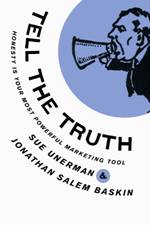Are you looking at the moon, or are you pointing a finger?
The Buddha is said to have pointed at the moon to indicate its wonders to his disciples. They immediately copied him, raising their own arms to point. They were concerned with getting it right. They had many questions: Should they point with their whole hand, or just a finger? Should the palm be raised upwards or lowered? Was the pointing best done with the right or the left arm?
They of course did not really see the moon, because of their concerns about getting the pointing right. In their desire for perfection they missed the wonder.
It is easy to get caught up in technique when we learn anything new, and miss the point of what we are doing it for, miss the bigger picture. And therefore people often get caught up in trying to master the technique of pointing rather than truly being able to simply admire the wonder of the moon.
This happens during training for Agile sometimes, a radically new way of working that essentially is about a different mind-set. Enthusiasts for Agile ways of working call out improved efficiencies and removal of waste of time activities that litter heritage ways of working. Yet it has a very different language and routines. During training it is easy to get caught up in the exactly right way to run a stand up or a scrum. The real point is that the new rhythms and ceremonies can be adapted to a team’s own needs.
Another example of this danger lies in over-optimising media. When we optimize a plan into what ends up being a suboptimal position because we are just so good at refining efficiencies we lose sight of effectiveness.
When we over target, convinced that the more we hone our planning to focus on exactly the bullseye demographic, and miss the brilliant brand effect that comes from reaching more people. As the great Jeremy Bullmore once said: “If BMW only ever targeted people who are in the market to buy a BMW in the next year, there soon wouldn’t be very many of them.” Because one of the reasons you buy a BMW is to be the envy of your friends and neighbours who can’t buy one.
Putting our faith in new promises of attribution modelling, when it is very difficult to get it more than approximately right.
Regularly repeating the same task without questioning what you are doing it for in the first place. This can especially occur at the start of your career when you are learning your craft. If you are bored by what you are doing, and you don’t know why you are doing it, challenge it. It is entirely possible that it could be automated, eliminated or substituted for something better.
Detail is important. But when the whole task becomes about how you do it, and you don’t have sight of the bigger picture, then you may well lose the point of what you are doing in the first place. Look for the moon, don’t worry about how you point the finger. See the whole of the moon.



The cure for zoom fatigue
Monday, May 17th, 2021Are you exhausted by video calls?
You’re not alone. Many colleagues and friends have complained of this. And speculated on why they are exhausted.
Some say they miss the energy they normally get from being with team members. If you are an introvert then Susan Cain’s theory in Quiet might mean that this would not apply as she says that only extraverts are said to get endorphins from being in a room with other people, whereas introverts find this tiring. Clearly some people are really suffering from losing the physical presence of others, and it just isn’t compensated for by the camera.
Others point to the extra mental processing that comes from not being able to read other people’s body language as instinctively as they can when they are in the same room in real life. If this is true, then it may be a useful lesson in empathy with those who exhibit neurodiversity of this kind. Social-emotional agnosia is a clinical term for this kind of emotional blindness. It is the inability to perceive facial expressions, body language, and vocal inflection. This disorder makes it very hard to accurately understand another person’s emotions in social situations. If this is what we are all losing on Zoom we can now understand, and empathise about, how hard this neurodiverse condition might be. Logically though I am not sure that the screen makes that much difference though as we are not exhausted from watching TV or a movie. When we watch a drama on a screen we don’t complain about having to work harder to compensate for the screen coming between us and the actor’s body language.
There is now evidence that points to another cause of this exhaustion, and it is gendered. A paper published earlier this month by researchers at Stanford University examines “Zoom fatigue,”. Researchers found that women reported a “significantly higher” level of Zoom fatigue than men. Among the more than 10,000 study participants, about 14% of women self-reported feeling either very or extremely fatigued after video meetings compared to roughly 5.5% of men.
Stanford Professor Jeff Hancock explained on Radio 4 that the reason for this fatigue was likely to be what he called “mirror anxiety”. People are anxiously examining their own little image in the corner of the screen. He pointed out that mirrors are relatively new to us in terms of evolution. Good mirrors have only been available to the mass populace for a few hundred years, which is nothing in terms of our emotional development as humans. Furthermore it has been well documented that women are culturally conditioned to be conscious of their looks.
Mirror anxiety on Zoom is a new problem then. We haven’t spent our careers looking in the mirror when we are in meetings of course. And when we do look in the mirror normally it is when we are getting ready to go out and face the world of work. We have our “game faces” on. This is totally different from catching constant glimpses of what we actually look like when we are listening hard, or concentrating on what is being said. And most of us don’t like it.
Prof Jeff suggests turning the camera off (some apps allow). I have another suggestion. Years ago I heard the glorious Joanna Lumley talking about a time as a teenager when she was getting ready to go out and her mother told her: “Don’t worry so much, nobody is going to look at YOU.” Now clearly Lumley is a beautiful woman, and does draw attention. But the truth is that when you are on that Zoom call you should remember Ma Lumley’s wise words. Because nobody is going to look at you, don’t worry about it. They are all too busy looking at themselves. Think instead about what you can say or do to make them feel good and that they belong. Remember the microaffirmations that we talk about in our book Belonging, the key to transforming and maintaining diversity, inclusion and equality at work. To paraphrase Maya Angelou: People don’t remember what you say. They don’t remember how you looked in a particular meeting. They remember how you make them feel.
Posted in MediaComment | No Comments »